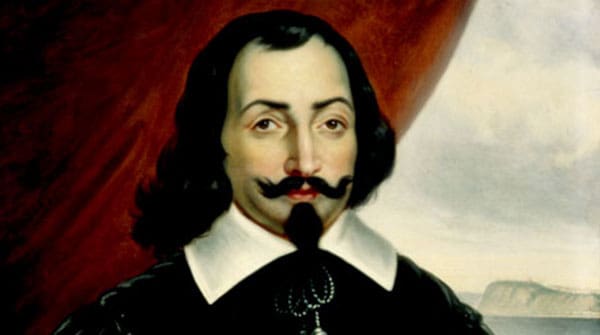French explorer and father of New France Samuel de Champlain attacked for being ‘too colonial’
 Cancel culture has come calling again, and another Canadian hero finds his reputation in peril from attacks by ultra-woke public employees.
Cancel culture has come calling again, and another Canadian hero finds his reputation in peril from attacks by ultra-woke public employees.
This time it is Samuel de Champlain (1567-1635), whom readers may remember from their high school history lessons as a French explorer and cartographer of the eastern seaboard and St Lawrence Valley, penetrating as far into the interior as Lake Huron.
He pioneered the French settlement of Acadia, founded Quebec City and Trois Rivieres, and created a vast trading network with First Nations with whom he had good relations. He spoke Indigenous languages, adopted three Indigenous children and wrote the first ethnographies of the Montagnais people.
Champlain defended Quebec against the English and against those back home in France who wished there to be no colonial settlement but only a fur trading enterprise in those lands. He kept royal interest alive in the face of little discernible return. He was, like no one else, the Father of New France and, thus, an important figure in the history of Canada.
 Samuel de Champlain |
| More Great Canadian Heroes |
| Sir John A. Macdonald: the enduring legacy of a great Canadian hero
|
| Bishop Grandin was a hero of early Manitoba
|
| Cornwallis and Ryerson: heroes or villains?
|
In the four centuries since his activities, Champlain has been honoured by having his name attached to towns, parks, colleges, rivers, lakes, schools, streets, and warships. His likeness has been preserved on postage stamps in Canada and the United States and with statues. Tributes to him have been constant and uncontroversial until recently when bureaucrats in Ottawa began to have second doubts about this towering figure.
An entirely harmless and fact-filled plaque commemorating him in Nepean Point, Ont., was flagged for review by the Historic Sites and Monuments Board, whose note explains: A review can be triggered for one of the following reasons – outdated language or terminology, absence of a significant layer of history, factual errors, controversial beliefs and behaviour, or significant new knowledge.
According to the Board, Canadian tributes to Champlain are under scrutiny for being too “colonial.”
Most Canadians would be puzzled by that judgment. “Too colonial?” Wasn’t Champlain’s whole adult life devoted to the colonial project? Isn’t the existence of Francophone Canada the result of 150 years of French colonialism? Wasn’t Canada originally formed out of the union of four British colonies, and wasn’t Confederation completed in 1949 with the addition of Britain’s oldest colony, Newfoundland?
The answer is “yes” to all of that, but we are now told that colonialism — which introduced elements such as literacy and science to North America and put an end to endemic warfare and slavery — is now something to be ashamed of. University curricula, our legal system, healthcare, and even our constitutional monarchy are all slated for decolonization in the name of reconciliation and inclusivity.
While laudable goals, anticolonialism holds a darker side for many activists, academics, critical race theorists, and organizations: it challenges the fundamental legitimacy of the Canadian state. As a result, we hear phrases such as “so-called Canada” or “Canadian-occupied territory on Turtle Island,” where the majority of Canadians are labelled as “settlers,” and elected officials describe Canada as a genocidal entity.
These critics do not share a unified vision in their corrosive attacks on the Canadian project, but they all benefit from undermining our historical pride. If Champlain, who planted the French-speaking fact, and Macdonald, who engineered Confederation, are now to be erased from history, it opens the door to radical upheaval and changes that we have not endorsed through democratic processes.
Gerry Bowler is a historian and Senior Fellow at the Frontier Centre for Public Policy.
For interview requests, click here.
The opinions expressed by our columnists and contributors are theirs alone and do not inherently or expressly reflect the views of our publication.
© Troy Media
Troy Media is an editorial content provider to media outlets and its own hosted community news outlets across Canada.

